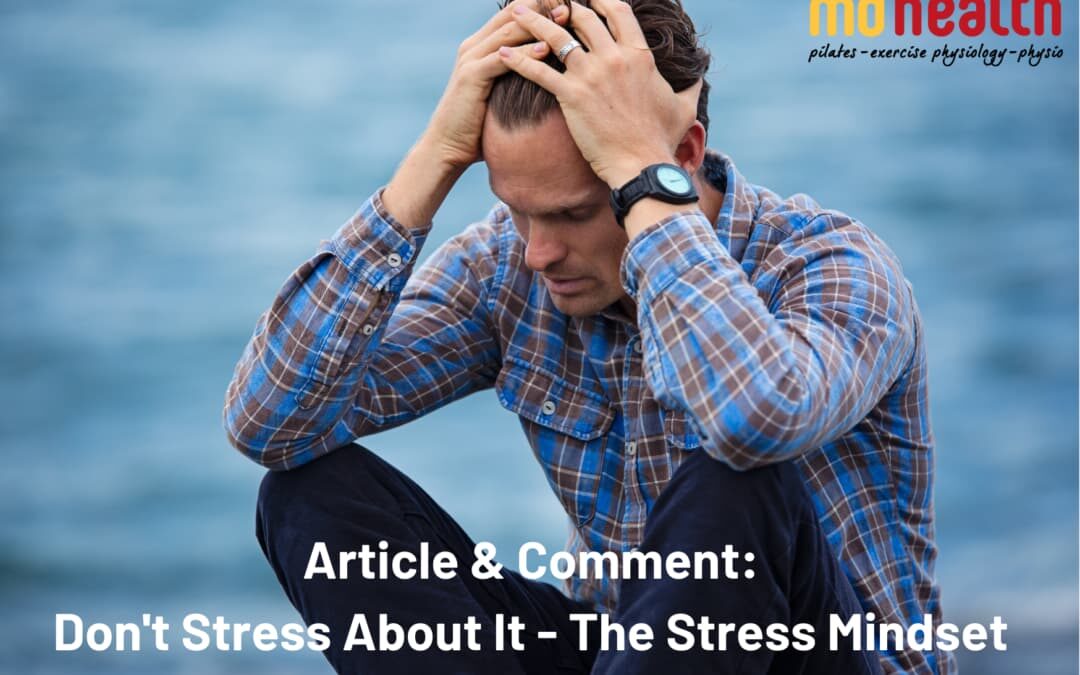Stress is a normal part of life. It’s clear that your mindset around stress has a huge effect on whether it’s a positive (enhancing) or negative (debilitating) result on your actions:
What is stress?:
- The stress response – It starts at the amygdala (the brain’s fear centre) which is primed to detect threats. It flags it up via the hypothalamus triggering the “fight or flight” response. Adrenaline is then released, which increases blood flow, boosts alertness and primes us to run. In addition, cortisol is released from the adrenal gland. This Cortisol releases stored glucose giving us more energy and dampening other functions such as digestion.
- Longer lasting stresses – (Associated with life events) such as the loss of a loved one, divorce or a pandemic, can bring long term positives. They lead to profound changes in how people experience the world, their appreciation for life, resilience/toughness and their sense of connection to others.
Your response to stress is dependent on your mindset:
- When people under a lot of stress who believed it was good for them, fared better than those with less stress who believed it was bad for them.
- There are 4 basic ways that our mindset can affect our stress response:
- 1) Shifting your attention – rather than noticing all the unpleasant effects, a positive mindset allows us to focus on possible opportunities instead.
- 2) Positive emotions – In addition to negative emotions, it can also be accompanied by positive emotions, such as feelings of hope, connection and resilience. The “stress is enhancing” mindset is really powerful in that it reduces unnecessary stress (the stress about stress) as well as increasing positive emotions.
- 3) Behaviour – The negative effect can be that you either “freak out” (fight response) or “check out” (flight response). Those with a positive mindset don’t dodge this unpleasant part of stress, but can use it to get stuff done. They focus more on the problems and attempting to address them. These tendencies in turn predict stress related outcomes, such as well-being and performance.
- 4) Regulation of cortisol response – People who view stress as enhancing (rather them debilitating) have better regulation of cortisol and dyhydroepiandrosterone sulphate (a hormone that helps with brain growth after stress). In addition, they experience feelings of stress less adversely.
There are 3 steps you can take in shifting your response to stress from a negative to positive mindset:
-
- Identifying the source of your stress and how you respond to it. This helps by moving the reaction from the emotive response.
- Realise that we generally get stressed about things because we care about them, which is actually a positive. What matters is to keep focus on why you are feeling that stress and use it to channel a helpful natural stress response.
- You need to turn the stress response into an advantage. Reframing anxiety as excitement has been shown to help people do better in tests, negotiations and public speaking.
De Lange, C (2021) Don’t Stress about it New Scientist, 4th December 2021, No. 3363. P39-41.
Do you have any questions?
Call us on (03) 9857 0644 or (07) 3505 1494 (Paddington)
Email us at admin@mdhealth.com.au
Check out our other blog posts here
Our clinical staff would be happy to have chat if you have any questions.



